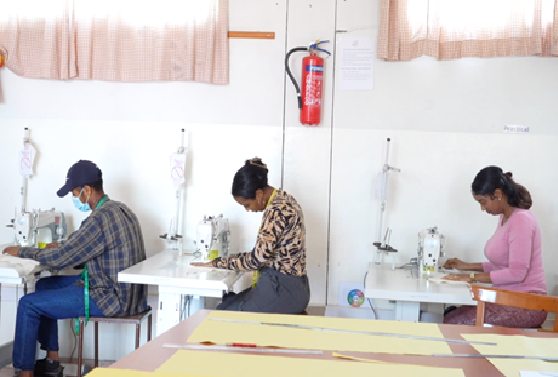Introduction:
This project aims to address the challenges faced by homeless children and vulnerable girls in Addis Ababa by reintegrating them into their families and society in a sustainable and transformative manner. Through education, vocational training, and social support, the project restores human rights, dignity, and opportunities for marginalized youth, contributing to a safer and more inclusive society.
Objectives:
The project aims to reintegrate homeless children and support vulnerable girls - particularly survivors of gender-based violence (GBV) - as they rebuild their lives and reconnect with their families. This support includes creating sustainable educational pathways at all levels, from elementary and secondary schooling to vocational training and university education.
Project Activities:
- Engaging Youth on the Streets
The project identifies and engages homeless children on the streets, offering immediate shelter, basic needs, and initial support to start their reintegration journey.
- Providing Education and Training
Participants are offered life skills, literacy programmes, and vocational training aligned with labor market demands. Training in agriculture, animal husbandry, nutrition, and financial literacy is also provided to enhance their long-term self-sufficiency.
- Improving Infrastructure and Facilities
Shelter homes and daycare centers are rehabilitated to provide a safe and supportive environment, including improved facilities for children and tailored services for young women and girls.
- Facilitating Social Reintegration
Regular visits and follow-ups with families are conducted to support the reintegration of children into their homes. Parents receive training in childcare and income-generating activities, while awareness sessions strengthen family and community support networks.
- Preventing Gender-Based Violence (GBV)
Vulnerable girls, including survivors of GBV, participate in gender equality workshops and receive tailored counseling. Training sessions for male residents address violence prevention and promote healthier community dynamics.
- Empowering Economic Independence
Entrepreneurship training, start-up capital, and materials are provided to help participants establish income-generating activities. Women and youth also receive job placement support and guidance.
- Building Local Capacity
Local staff and authorities are trained in child protection, human rights, governance, and leadership to ensure sustainable, high-quality program implementation.
- Strengthening Support Networks
Self-help groups and savings initiatives are created to provide ongoing financial and emotional support to participants and their families.
Expected Results:
- 540 homeless children reintegrated into families and society, benefiting 30 additional people through indirect impacts in their communities.
- 575 vulnerable girls, including survivors of GBV, reintegrated into society, positively affecting 20 others within their social environments.
- 70 local staff and authorities trained, improving the future handling of child rights and reintegration programs.
- An estimated 2,000 children annually supported through strengthened systems, potentially reaching 29,700 people over ten years.
|






